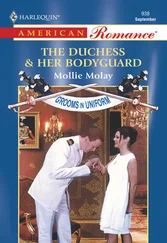Tom Lydon, author of The Sea Otters and thus virtually Doucette’s biographer, records that Doucette was a long-distance sailor and, before the war began, had spent a lot of time sailing the South China Sea – mainly for his own delight, nominally for British Intelligence. He had identified the beaches up near the Thai border where he believed the Japanese would land in a future attack on Malaya, and he also informed British Intelligence that the Japanese would not slink through the jungles but would roll down the good north–south roads in trucks and on bicycles, flanking any line the British might set up. So he had been a prophet ignored, and General Perceval and the others had lost Malaya and Singapore in precisely the way he claimed he had warned them they would.
During one of his delightful reconnaissances by small boat, Doucette met the daughter of a Belgian businessman in Macau, and married her. In fact, as she told me after the war ended, he had heard that there was a beautiful Belgian girl in Macau, and ensured that on his long sweep across the South China Sea, he took his mess uniform with him in a duffel bag, to charm the family and to court the girl: Minette Casselaine. Not a maiden in a tower as it turned out but a young, sadder and wiser divorcee with a child named Michael. He courted Minette and married her at his regimental church in Singapore.
The month before the fall of Singapore, Doucette had shipped Minette, whom he called Netty, and her son Michael, out of Singapore and to Australia. By the time Singapore surrendered, Minette and her son were living in the suburbs of Perth in Western Australia.
After the fall, Charlie Doucette had got together some escapees, Singapore civil officials, police, judicial, and British officers and men, put them in a lumpy, 25-ton fishing vessel named Johannes Babirusa , and relayed them to Sumatra to the estuary of the Indragiri River, which he knew from his peacetime recreation of sailing. From the point where he landed them they could reach, by a last hectic road trip, the port of Padang on the west shore of Sumatra, where Dutch, British and Australian rescue ships waited to pick-up the strays from the catastrophe. He went back to Singapore to a rendezvous on the west coast many times after the fall to rescue groups of officers and officials.
For these exploits alone, Doucette – by the time Leo met him – was already a legend. Men in the know shook their heads, laughed and felt better when his name came up. I record this fact plainly and in sadness. It remains to me in part to record only the thickening and ongoing strands of Charlie ‘The Boss’ Doucette’s Homeric status. The legendary state traps not only the hero himself but exercises a magnetic pull on other men. Stronger than breath, stronger than sex, as Dotty Mortmain would say.
Once Doucette could no longer rescue anyone from Singapore, the gaps in Japanese security having closed, he escaped from Sumatra on Johannes Babirusa with sixteen Special Operations men, mainly British. He was navigator, and steered for India. On the way, he once told Leo and myself, the Johannes had been attacked by a Japanese aircraft, but although the sails were riddled and the decking splintered, neither he nor any of the other men were wounded. Just the same, this strafing seemed to have affected him in a curious way. He always mentioned it heatedly. He had been so badly hurt in other ways by the Japanese dominance of the region that for the sake of sanity, I think, he put all his grievance into that particular matter. It was as if it was the chief outrage of his military career and a final sign of Japanese malice.
The Babirusa reached Bombay, to considerable congratulation from the military in-crowd, and Doucette was sent to Delhi and attached to Special Operations Executive there. He wrote to Minette, announced his escape, and asked her to leave Australia and join him. In the meantime he went to his late father’s friend General Wavell and proposed to him a raid upon Singapore harbour using a vessel rather like the Babirusa . The head of SOE Delhi decided that the Australian Independent Reconnaissance Department in Melbourne had the best personnel for such a venture. In it, the raiders could approach Singapore from Darwin up the long Indonesian archipelago, hiding amongst islands, looking like a coaster doing normal Indonesian, Borneo or Singapore business.
Charlie now telegraphed his wife to tell her not to leave Australia after all – he was coming there. But the telegram arrived too late. Netty and three-year-old Michael had left Perth a week earlier on the Tonkin , with over a hundred other passengers. After five days at sea the ship seemed to have evaporated. Still in Delhi and about to leave for Australia, Doucette heard that the Tonkin had vanished with his wife and stepson. When I ultimately met Doucette, I somehow expected him to talk about this giant fact, directly or indirectly, most of the time. But it was the sort of thing he tried to keep to himself.
The head of Independent Reconnaissance Department in Melbourne, one Major Doxey, listened to the ideas of the dazzling newcomer. The chief idea was: get a Japanese coaster or fishing vessel to Australia, put on the right operatives, sail it through the Indonesian and Malay archipelagos and make an assault by canoe with limpet mines on Japanese shipping in the Singapore Roads. Ambitious Doxey loved this. He had felt cramped by the new relationship with the Americans, and dependent on them for submarines to land operational parties. But this plan didn’t need permission or help from the Americans. And it would show the enemy that they had no safe harbour.
In any case, now, in 1943, preparing in Cairns for operations soon to take place, Doucette and Leo had made a unique folboat pairing. The most significant members of their families had vanished in the war. They might have thought it was a fanciful connection. But it was a connection nonetheless.
I imagine them sitting in pandanus shade on a beach waiting for the little canvas prows of inferior paddlers to show themselves on the dazzle of ocean. In speaking with Leo, Major Doucette was reticent with the details of his life and let go of them shyly. Doucette remarked, as they sat on Huskisson Beach, their race done, that the Australian other ranks were funny chaps.
Leo asked him in what way.
They always give you the impression they won’t obey an order, yet they do.
Leo said they just wanted to assert their dignity.
Some of the things they say and do, reflected Major Doucette, would be the subject of a court-martial in Britain.
Leo said it would be a waste of time charging them and would only make them sullen.
The major said he could do with an Australian officer to liaise between himself and his Australian operatives. Leo listened to this fanciful talk and didn’t take it too seriously at first. His mind was given over to the proposed raiding party on Japanese-occupied Rabaul. I knew nothing of this constantly postponed plan, but it was the reason our engagement stretched out. The group of which he was a member were to be dropped and picked up by submarines, a prospect which Leo looked at as a pleasing extension of his experience and a fulfilment of filial duty to his father. Much of the Australian autumn and winter he was in training for this Rabaul mission, which would never take place. His dreams of invading Rabaul Harbour by canoe with Jockey Rubinsky and others were ultimately quashed by General MacArthur’s headquarters, who would not supply a submarine for the drop-off and pickup. MacArthur’s office had earlier said that it would all be okay, but then one of the American submarine fleet was destroyed in those same waters. And in any case, a new plan was in force to bypass the large Japanese garrison in Rabaul and to let it wither on the vine. Suddenly Rabaul was not worth risking any more submarines for. The Americans, I discovered later, also found it ideologically offensive, since it seemed to encourage the idea that British imperialism, even in its more modest Australian variety, would take up in New Britain after the war from where it was in 1941.
Читать дальше












